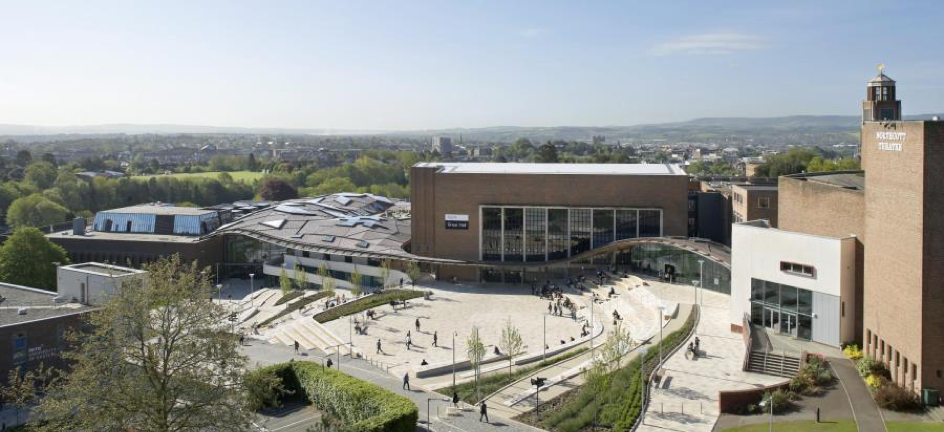
STFC Introductory Solar System Plasmas Summer School
27 – 31 August 2018, University of Exeter
The UK has a vibrant solar system science community that is of international renown. One aspect of this success is our commitment, as a community, in training the next generation of solar system scientists. Since the 1980’s STFC Courses in Solar System Plasmas have played an important role in the training of a generation of young UK solar, heliospheric, magnetospheric and ionospheric physicists, and often a number of their international colleagues. We wish to continue this excellent tradition by hosting the next Introductory Summer School in Solar System Plasmas at the University of Exeter.
The Centre for Geophysical and Astrophysical Fluid Dynamics (CGAFD) combines expertise in applied mathematics, numerical modelling, and careful analysis of observations to investigate a vast range of problems in both geophysical and astrophysical settings. The University of Exeter has invested strongly in STEM subjects in recent years, and this is reflected in the substantial growth of CGAFD and its outstanding research environment. Members have strong connections to the nearby UK Meteorological Office (also in Exeter). In response to the UK Government adding severe space weather to the National Risk Register in 2011, the Met Office Space Weather Operations Centre (MOSWOC) was created to provide a UK operational space weather prediction centre to help protect the country from the serious threats posed by space weather events.
The School brings internationally leading UK scientists together to instruct and inspire the incoming PhD students of 2018. It will provide them with the broad context in which their specific research will reside, and encourage interdisciplinary thinking from the outset. Additionally, it will encourage participants to consider the timeliness and impact of present research both by highlighting existing and planned missions.
This 5-day course will consist of a number of lectures, which will cover both Core Material and more Specialised Topics reflecting local Exeter activities (e.g. specialist lecture on space weather forecasting from the Met Office). Social events and a planned excursion will build cohort spirit and explore the Impacts, both curiosity-driven and economic/technological, of solar system plasma science. Subject to confirmation, participants may wish to visit the Met Office after the summer school (Friday afternoon) to visit their operational and high-performance computational facilities.
Course Director: Dr. Claire Foullon
Course Secretariat: Dr Emma Clarke
Contact details:
College of Engineering, Mathematics and Physical Sciences
North Park Road
University of Exeter
Exeter
EX4 4QF
email:
T: +44 (0) 1392 72 3687


